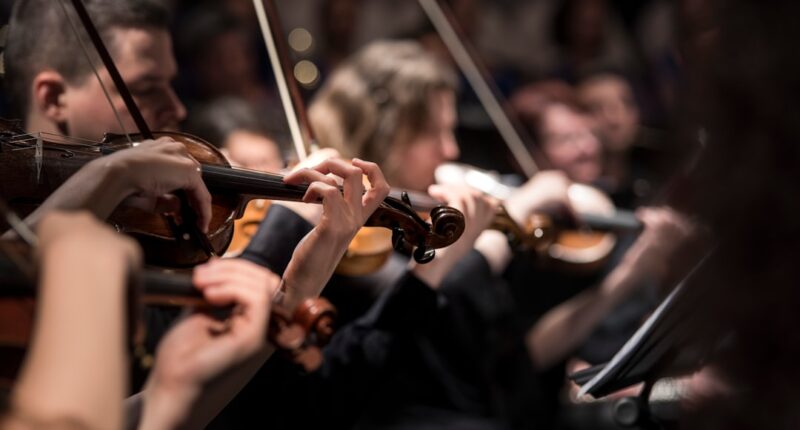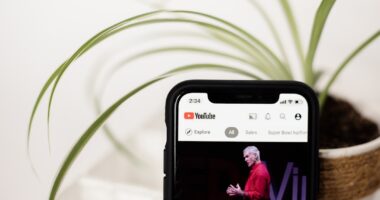In today’s digital age, having a strong online presence is crucial for independent musicians looking to establish themselves in the music industry. With the rise of social media and streaming platforms, the internet has become a powerful tool for reaching a global audience, building a fanbase, and generating income. A well-crafted online presence can help musicians showcase their music, connect with fans, collaborate with other artists, and access valuable resources and support.
Having a strong online presence allows independent musicians to reach a wider audience than ever before. With the click of a button, musicians can share their music with fans from all corners of the globe. Social media platforms like Instagram, Facebook, and Twitter provide a direct line of communication between musicians and their fans, allowing for real-time updates, behind-the-scenes content, and engagement. Additionally, streaming platforms like Spotify, Apple Music, and YouTube enable musicians to share their music with millions of listeners worldwide. By leveraging these online tools, independent musicians can expand their reach and connect with fans on a global scale.
Furthermore, an online presence is essential for building a fanbase and community. Through social media and streaming platforms, musicians can engage with their fans on a personal level, fostering a sense of community and loyalty. By sharing authentic and relatable content, musicians can create a strong connection with their audience, leading to dedicated fans who will support their music and attend live shows. Additionally, online platforms provide opportunities for fans to interact with each other, creating a supportive community around the musician’s work. This sense of community not only strengthens the musician’s fanbase but also creates a network of support that can propel their career forward.
Key Takeaways
- Online presence is crucial for independent musicians to reach a wider audience and build a fanbase.
- The internet allows musicians to connect with a global audience and expand their reach beyond local boundaries.
- Building a fanbase and community online can lead to increased support and engagement for independent musicians.
- Showcasing music and merchandise online provides a platform for musicians to promote and sell their products to a wider audience.
- Online platforms offer networking and collaboration opportunities for musicians to connect with industry professionals and other artists.
Reaching a Global Audience
The internet has revolutionized the way independent musicians can reach a global audience. With the click of a button, musicians can share their music with fans from all corners of the globe. Social media platforms like Instagram, Facebook, and Twitter provide a direct line of communication between musicians and their fans, allowing for real-time updates, behind-the-scenes content, and engagement. Additionally, streaming platforms like Spotify, Apple Music, and YouTube enable musicians to share their music with millions of listeners worldwide. By leveraging these online tools, independent musicians can expand their reach and connect with fans on a global scale.
In addition to social media and streaming platforms, musicians can also utilize their own website to reach a global audience. A professional website can serve as a central hub for all of the musician’s online activities, including music releases, tour dates, merchandise sales, and more. With the right marketing strategies in place, musicians can drive traffic to their website from all over the world, increasing their visibility and attracting new fans. By harnessing the power of the internet, independent musicians can break down geographical barriers and connect with a diverse and international fanbase.
Furthermore, the internet provides opportunities for musicians to collaborate with artists from different parts of the world. Through online platforms and social media networks, musicians can connect with like-minded artists and producers, leading to creative collaborations that transcend borders. This global collaboration not only enriches the musician’s creative work but also exposes them to new audiences in different countries. By reaching a global audience, independent musicians can expand their reach, build an international fanbase, and open doors to new opportunities in the music industry.
Building a Fanbase and Community
Building a fanbase and community is essential for independent musicians looking to establish themselves in the music industry. With the rise of social media and streaming platforms, musicians have unprecedented opportunities to engage with fans on a personal level and foster a sense of community around their work. By sharing authentic and relatable content, musicians can create a strong connection with their audience, leading to dedicated fans who will support their music and attend live shows.
Social media platforms like Instagram, Facebook, and Twitter provide a direct line of communication between musicians and their fans. Through these channels, musicians can share behind-the-scenes content, personal updates, and interact with fans in real-time. This level of engagement helps humanize the musician’s brand and creates a deeper connection with their audience. Additionally, streaming platforms like Spotify and Apple Music allow musicians to connect with fans through curated playlists, artist profiles, and direct messaging. By leveraging these platforms, musicians can build a loyal fanbase that will support their music and attend live shows.
Moreover, an online presence creates opportunities for fans to interact with each other, fostering a sense of community around the musician’s work. Through social media groups, fan forums, and live stream events, musicians can bring their fans together and create a supportive network around their music. This sense of community not only strengthens the musician’s fanbase but also creates a network of support that can propel their career forward. By building a fanbase and community online, independent musicians can create a dedicated following that will champion their music and contribute to their success in the industry.
Showcasing Music and Merchandise
| Item | Number of Sales | Revenue |
|---|---|---|
| T-shirts | 150 | 3000 |
| CDs | 100 | 2000 |
| Vinyl Records | 50 | 2500 |
An online presence provides independent musicians with a platform to showcase their music and merchandise to a global audience. Through social media, streaming platforms, and their own website, musicians can effectively promote their music releases, merchandise sales, and upcoming events. By leveraging these online tools, musicians can increase visibility for their work and drive sales while connecting with fans on a personal level.
Social media platforms like Instagram and Facebook offer opportunities for musicians to showcase their music through visual content such as album artwork, lyric videos, live performances, and studio updates. These platforms allow musicians to engage with fans through regular posts and stories that highlight their latest releases and upcoming projects. Additionally, streaming platforms like Spotify and Apple Music provide artists with artist profiles where they can showcase their discography, share playlists, and connect with fans through direct messaging. By utilizing these platforms effectively, musicians can increase streams for their music while building a dedicated fanbase.
Furthermore, an online presence allows musicians to promote and sell merchandise directly to their fans. Through their website or third-party platforms like Bandcamp or Shopify, musicians can offer a range of merchandise including physical albums, vinyl records, t-shirts, posters, and more. By showcasing their merchandise online through engaging visuals and targeted marketing campaigns, musicians can drive sales while strengthening their brand identity. Additionally, social media platforms provide opportunities for musicians to promote merchandise through sponsored posts and targeted ads that reach potential customers worldwide.
Networking and Collaboration Opportunities
The internet provides independent musicians with valuable networking and collaboration opportunities that were previously inaccessible. Through social media networks, online forums, and streaming platforms, musicians can connect with like-minded artists from different parts of the world. This global collaboration not only enriches the musician’s creative work but also exposes them to new audiences in different countries.
Social media platforms like Instagram and Twitter offer opportunities for musicians to connect with other artists through direct messaging and engagement on posts. By reaching out to fellow musicians whose work aligns with theirs, artists can initiate collaborations that lead to new music projects or joint promotional efforts. Additionally, streaming platforms like Spotify provide opportunities for artists to connect through curated playlists or collaborative releases that expose them to each other’s fanbases.
Moreover, online forums and communities dedicated to music production or specific genres provide spaces for artists to connect with potential collaborators or industry professionals. These platforms allow musicians to share ideas, seek feedback on their work, or find collaborators for new projects. By actively participating in these communities, independent musicians can expand their network and open doors to new creative opportunities.
Access to Resources and Support

An online presence provides independent musicians with access to valuable resources and support that can help propel their careers forward. Through social media networks, streaming platforms, and online communities dedicated to music production or specific genres, artists can access resources such as educational content, industry insights, funding opportunities, and mentorship programs.
Social media platforms like Instagram and Facebook offer opportunities for artists to access educational content through live workshops or Q&A sessions hosted by industry professionals. These sessions provide valuable insights into various aspects of the music industry such as marketing strategies, music production techniques, or navigating the business side of music. Additionally, streaming platforms like Spotify provide artists with access to data analytics that offer insights into listener demographics, streaming trends, and performance metrics that can inform strategic decision-making.
Furthermore, online communities dedicated to music production or specific genres provide spaces for artists to seek mentorship or guidance from more experienced professionals in the industry. These communities often feature mentorship programs or networking events that connect emerging artists with established industry professionals who can offer guidance or support in various aspects of their career.
Generating Income and Monetizing Music
An online presence offers independent musicians various opportunities to generate income and monetize their music through streaming platforms, merchandise sales, crowdfunding campaigns, virtual concerts, sponsored content partnerships, and more.
Streaming platforms like Spotify and Apple Music provide artists with opportunities to generate income through royalties based on the number of streams their music receives. By actively promoting their music on these platforms through targeted marketing campaigns or playlist placements, artists can increase streams for their music while earning royalties that contribute to their income.
Moreover, an online presence allows artists to monetize their fanbase through merchandise sales directly to consumers worldwide. Through their website or third-party platforms like Bandcamp or Shopify, artists can offer a range of merchandise including physical albums, vinyl records, t-shirts, posters, and more. By showcasing their merchandise online through engaging visuals and targeted marketing campaigns on social media platforms like Instagram or Facebook artists can drive sales while strengthening their brand identity.
Additionally virtual concerts have become increasingly popular as a way for artists to generate income while connecting with fans worldwide. Through live stream events hosted on social media platforms or dedicated virtual concert platforms artists can perform live shows from anywhere in the world while selling tickets or offering exclusive content packages that generate income.
In conclusion having an online presence is essential for independent musicians looking to establish themselves in the music industry by reaching a global audience building a fanbase showcasing music merchandise networking collaboration opportunities accessing resources support generating income monetizing music through various channels available on the internet today.
If you’re an independent musician wondering if a music website is essential for your career, you’ll find some valuable insights in the article “The Importance of a Music Website for Independent Artists” on musicmarketing.blog. This article delves into the reasons why having a dedicated music website can significantly impact an artist’s online presence and career trajectory. It’s definitely worth checking out to gain a deeper understanding of the topic.
FAQs
What is a music website?
A music website is an online platform where musicians can showcase their music, connect with fans, and promote their work. It typically includes features such as music streaming, artist profiles, and social networking capabilities.
Why does a music website matter for independent musicians?
A music website is important for independent musicians because it provides them with a professional online presence and a platform to reach a wider audience. It allows them to showcase their music, connect with fans, and promote their work without relying on traditional music industry channels.
What are the benefits of having a music website for independent musicians?
Having a music website allows independent musicians to have control over their brand and image, reach a global audience, sell their music directly to fans, and collect valuable data and insights about their audience and fanbase.
What features should a music website have for independent musicians?
Key features of a music website for independent musicians include music streaming capabilities, artist profiles, social networking integration, e-commerce functionality for selling music and merchandise, and analytics tools to track website traffic and audience engagement.
How can independent musicians drive traffic to their music website?
Independent musicians can drive traffic to their music website through social media promotion, email marketing, search engine optimization (SEO), collaborations with other artists and music websites, and live performances and networking events.









